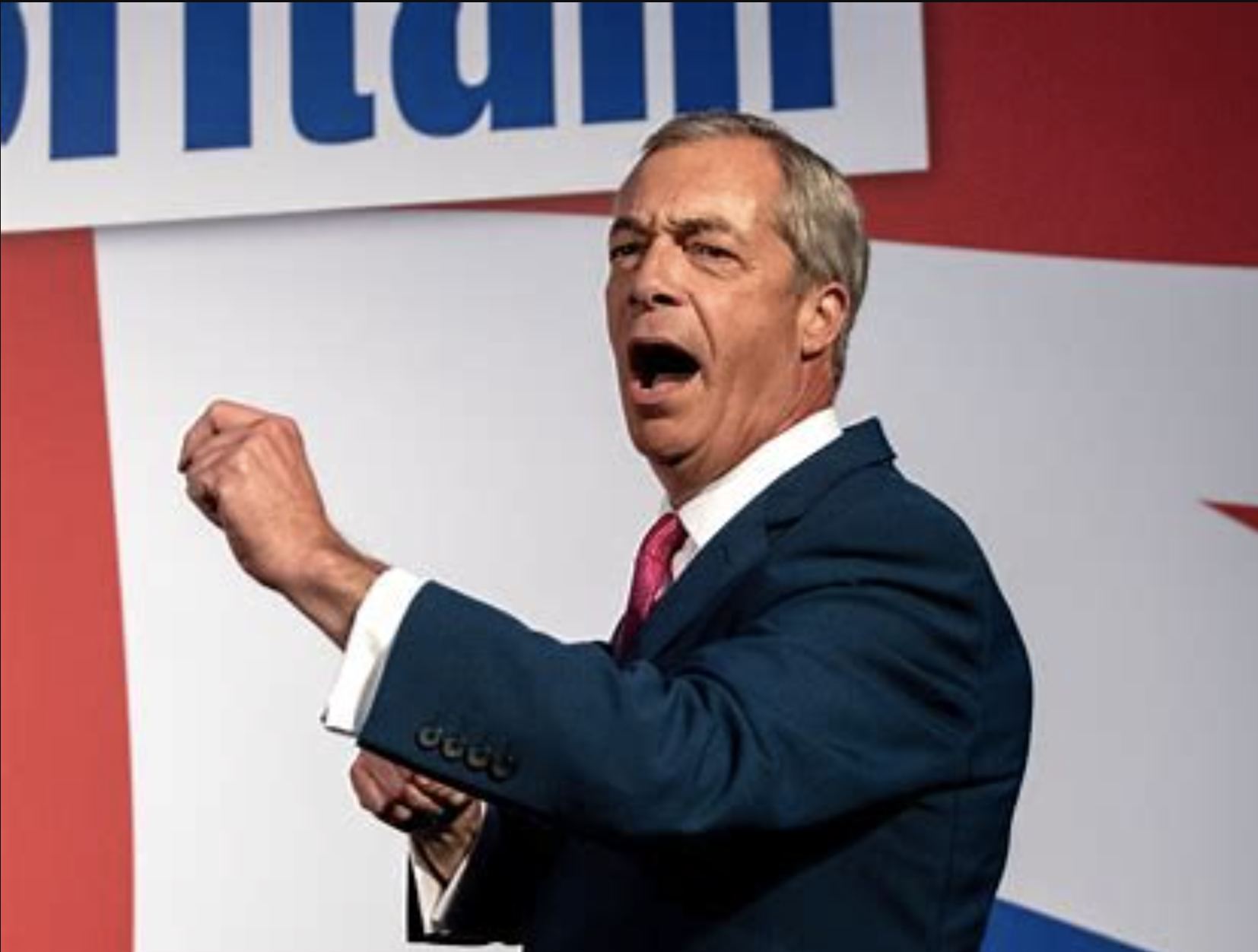The sun was definitely shining on Nigel Farage and the Reform Candidate, Sarah Pochin, contrasting against the gloom and grim determination inside Labour’s campaign headquarters. Where Karen Shore, Labour’s candidate, a local councillor and former teacher, stared at the map of the constituency wondering what went wrong.
“They’re everywhere, Reform voters” muttered a young labour activist, returning from a grueling door-knocking session. “Reform. Every street, every door. And Farage…he’s like a heat-seeking missile, locked onto this seat.”
The ‘missile’ was Nigel Farage, the charismatic, controversial leader of Reform UK. The by-election, triggered by the disgraced former MP Mike Amesbury’s resignation, had become a battleground, a test of Labour’s popularity and Labour wasn’t taking anything for granted. The national party had poured resources into Runcorn and Helsby and yesterday the polls were showing 89 seats in favour of Reform.
Karen Shore was the ideal candidate on paper. Local, with a track record of community service, she spoke the language of the people. She hammered home Labour’s core messages: investment in public services, support for working families, and a commitment to a fairer society. “This is our home,” she’d say at every rally. “These are our values. We won’t let anyone take that away from us”, yet following the appalling record in the first 6th months of Labour’s failing government, they were always doomed. Despite this being Labour’s 16th safest seat.
The campaign was a ground war. Labour activists canvassed tirelessly, delivering leaflets, organizing community events, and holding town hall meetings. They targeted wavering voters, reminding them of Labour’s history of fighting for Runcorn and Helsby, of the schools built, the hospitals improved, the jobs created under Labour governments.
“We’re not just fighting for a seat,” Karen apparently told her team, “We’re fighting for Labour’s survival and credibility”.
But Reform’s message was equally powerful, if more divisive. Sarah Pochin, their candidate, a former Conservative councillor, tapped into a deep vein of discontent not just in Runcorn and Helsby but nationally, speaking of a ‘forgotten England,’ of communities left behind by globalization and immigration, of a political class in Westminster that had lost touch with ordinary people of ‘Hope for Change’. That message hit home, not just locally but across the entire voting country if exit-polls are to be believed.
“Labour doesn’t listen anymore,” Pochin declared at a packed meeting in a Runcorn pub. “They’ve become the party of the metropolitan elite, more interested in woke nonsense than the concerns of working families. They hate Britain and British values.”
Reform’s campaign was relentless. They used social media effectively, targeting voters with tailored messages. They held effective rallies, with Farage as the star attraction, whipping up crowds with his professional attitude instilling hope against a background of Labour government hopelessness, focussing on issues that resonated with many voters: the cost of living, rising crime, and a perceived lack of control over immigration, child rape gangs being ignored, the rise of woke policing rather than effective policing.
Labour fought back dirtily highlighting Reform’s inconsistencies, their lack of detailed policies, falsely claiming that Reform is far-right. They accused Pochin of being a ‘failed Tory, trying to repackage herself as a champion of the working class’.
The final week was a frenzy of activity. Labour brought in every available resource. National figures campaigned alongside Karen, reinforcing the importance of this ‘crucial’ election, although Starmer was notable in his absence, despite the Labour party machine being in full swing, determined to hold onto this critical seat.
If Labour lost this seat, they privately admitted, then no current cabinet minister was safe at an election.
When Election Day arrived, a day of nail-biting tension. The turnout was a testament to the intensity of the campaign. As the polls closed, a sense of foreboding settled over Labour’s headquarters. The first results began to trickle in, and the mood shifted.
Exit polls from polling station after polling station showed a swing to Reform, a swing that defied all expectations. The Labour vote was holding up in some areas, but in others, it was collapsing…was the unthinkable was happening?

